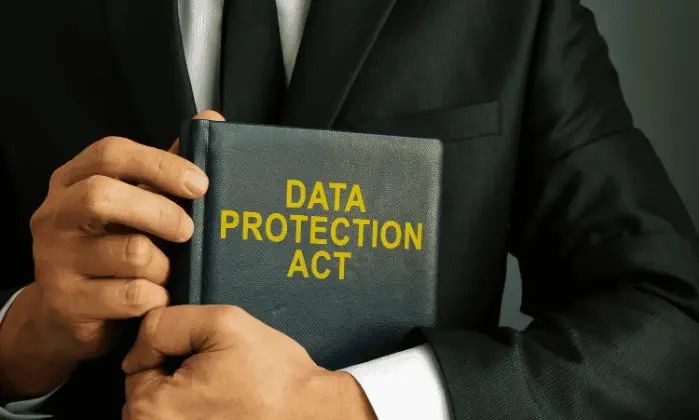Federal Security Breach Notification Laws
When your personal information is leaked in a data breach, it’s important to know that you’re protected by a set of federal and state data privacy laws. Victims of data breaches can often take legal action by filing an individual lawsuit or joining a class-action lawsuit to seek compensation for the unauthorized exposure of their information. However, your legal options vary based on your state, the size of the breach, and what information was exposed.

Home • What is a Data Breach? • Federal Security Breach Notification Laws
- February 26, 2026
- Do Federal Data Breach Laws Exist?
- Key Federal Laws That Require Data Breach Notification
- Federal vs. State Data Breach Notification Laws
- Proposed Federal Legislation
- Who Oversees Data Breach Notification at the Federal Level?
- What to Do if Your Information Is Compromised
- Federal Breach Notification Rules FAQs
- Why National Breach Laws Matter
Do Federal Data Breach Laws Exist?
While there is no comprehensive federal breach notification law, various sector-specific laws provide limited coverage, and local laws work to protect consumers on a state-by-state basis. Each state has its own set of privacy laws that, in combination with existing federal law, work to protect consumers’ data. The scope and jurisdiction of these laws vary.
Key Federal Laws That Require Data Breach Notification
Several major federal regulations include breach notification requirements, though these requirements are typically limited to specific industries. Some of these regulations include:
- HIPAA (Health Insurance Portability and Accountability Act)
HIPAA is a federal law that protects patient health information and ensures that health care providers adhere to certain privacy standards. It also protects individuals’ rights to access their health information and understand how it is being used. Additionally, the HIPAA Breach Notification Rule requires HIPAA-covered entities to provide notification following a breach of unsecured protected health information.
- GLBA (Gramm-Leach-Bliley Act)
The GLBA is a federal law that regulates the privacy and security of consumer financial information held by financial institutions. Under the GLBA, financial institutions must inform customers about their information-sharing practices, provide options to opt out, and implement security measures to protect consumers’ data.
- FISMA (Federal Information Security Modernization Act)
FISMA requires businesses, organizations, and other agencies to implement programs to provide information security for the information and systems that support the agency’s operations and assets.
- FTC Act (Federal Trade Commission Act)
The FTC Act is the main law that empowers the FTC to enforce consumer protection laws. This gives the FTC the authority to issue industry-wide rules and regulations and to file civil actions in certain cases. Under the FTC Act, businesses have an obligation to protect consumer data, and the FTC may step in under its consumer protection authority when companies fail to notify or protect consumers after a breach.
Federal vs. State Data Breach Notification Laws
Federal data breach regulations differ from state laws, particularly in terms of scope, consumer rights, and notification timelines. Unfortunately, the lack of a wide-reaching national law creates inconsistencies in notification requirements that impact both consumers and businesses. All U.S. states have laws requiring private businesses and some governmental entities to notify individuals of security breaches of information involving personally identifiable information. These laws typically contain provisions regarding who must comply with the law, definitions of “personally identifiable information,” what constitutes a breach, notice requirements, and exemptions.

New cases and investigations, settlement deadlines, and news straight to your inbox.
Proposed Federal Legislation
Recent proposals that aimed to unify breach notification timelines and enforcement have been unsuccessful in Congress. Although draft bills like the American Privacy Rights Act of 2024 received bipartisan support, industry influence and the complexity of privacy concerns have slowed efforts to pass a comprehensive federal privacy law. Some of the most recent efforts include:
The Data Security and Breach Notification Act proposed requirements for certain commercial entities regulated by the FTC and other organizations that handle personal data to implement security measures, restore data systems after a breach, and assess the risk of harm to consumers from the breach. The bill failed to pass the House of Representatives in 2017.
The Consumer Data Privacy and Security Act aimed to establish standards for collecting personal data, including prohibiting businesses from collecting such data without consent from the individual, except as reasonably necessary. The bill would also have required businesses to publish their privacy policies, implement data security programs to safeguard such data, and provide individuals with reasonable control of their data. It did not pass through the Senate.
Who Oversees Data Breach Notification at the Federal Level?
Several federal agencies are involved in enforcing breach laws, depending on the type of information exposed. The U.S. Department of Health and Human Services’ Office for Civil Rights enforces regulations surrounding HIPAA breaches. The FTC oversees consumer protection violations, including post-breach failures to disclose and protect consumers. Additionally, the Securities and Exchange Commission now requires public companies to disclose material cybersecurity incidents within four days of determining they are material.
What to Do if Your Information Is Compromised
If your data was exposed in a breach and your personal information has been compromised, take the following steps to protect yourself and prevent further harm.
- Identify What Data Was Exposed: Find out as much as possible about the breach, including what information was accessed.
- Watch for Official Notices: Notices of a data breach must include a description of the breach, the type of information that was compromised, steps to protect your data, and steps the company or organization is taking to mitigate further risks.
- Take Action to Protect Your Identity: If the breach was connected to an online account, change your passwords and turn on two-factor authentication if possible. Additionally, monitor your financial accounts and credit reports for any unauthorized activity.
- Consider Your Legal Options: You may be entitled to file legal action for your financial damages, emotional distress, and risk of imminent harm.
Federal Breach Notification Rules FAQs
Is there a single federal law that covers all data breaches?
No, there is no single comprehensive national privacy law in the United States that covers all data breaches. However, several sector-specific data security laws exist at the federal, state, and local levels.
Can I sue under federal law if my data is breached?
You may be able to sue a company under federal law if your data is breached and you suffer harm. You may also be able to take legal action under state or local privacy laws.
Are companies required to notify the public of every breach?
All 50 states have data breach laws that require companies to provide notice of data breaches involving specific personal identifying information
Why National Breach Laws Matter
Though individual state laws can help protect consumers after data breaches, there is still a need for stronger, unified protections at the federal level. Even with notification requirements in place, it’s important to stay informed, report any suspicious activity, and explore your legal options if your data has been exposed. If you’ve been affected by a data breach, contact Class Action U to learn more about your legal options. We aim to simplify the process for people wishing to join ongoing class-action lawsuits or file individual lawsuits after having their data exposed. We can connect you with a skilled data breach lawyer who is ready to handle your case.
New cases and investigations, settlement deadlines, and news straight to your inbox.
